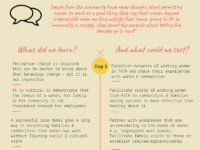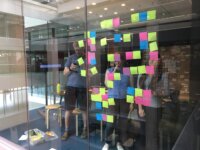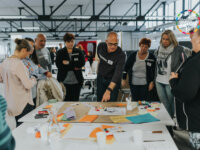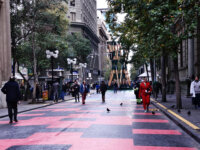The Government of Finland has launched an “Experimentation Accelerator” as a network-based self-organising platform for innovative public servants to develop cross-sectoral solutions through co-creation, mutual learning and sparring from inspiring innovation champions. This year there are 17 teams involved in the process consisting of 4 co-working sessions, with experiments ranging from Lean Start-up, deepened service thinking in and across the participating organisations to AI and strategic…
Innovation Tag: Experimentation
Every week millions of people use the UK government's GOV.UK website to do complex and sometimes life-changing tasks, such as learning to drive, getting a visa, or starting a business.
In the past, finding the guidance, forms and online services you needed could be difficult and time-consuming.
Step-by-step navigation is a new feature on GOV.UK that allows any service to be represented as a series of simple steps.
There are two projects to co-build the relationship change between administration and farmers, organised by the group “Les IdéaCteurs” :
- “la parole aux jeunes” an innovative form of debate with 80 technical students to become farmers
- a creative session “pour simplifier la vie des agriculteurs” organised in june 2018, with 40 people (half of farmers, half of public officers) which allowed, in a very constructive climate, to generate around 20 ideas about 3 possible axes of…
This innovation was developed in order to help to prevent interferences, providing a solution for booking frequencies in the general authorization bands.
The main innovation is that this solution is based on the blockchain technology, and open to everybody. This way, our solution guarantees the integrity, the immutability, the transparency, the traceability, the audibility of the reservations of frequencies.
With the drafting of its first Constitution, Mexico City had a great opportunity: to explore innovative ways of crowd-sourcing this historic document, setting an example to other cities in the world on how to design important democratic experimentation at the scale of a megalopolis. The result of the entire Constitutional process is a forward-thinking document with progressive social policy and human rights at its heart. It became a legal reality in September 2018.
The Lab is an all-of-government neutral space enabling agencies to collaboratively innovate to make it easier for people to access government services. It's a design & development lab to experiment, drive and enable the systemic change of government for the benefit of society. We are providing a way to direct public funding to systemic improvements, horizontal efforts around shared goals, capability uplift, high value reusable components and actionable innovation for all participating agencies.
Case Study
Positive Deviance Pilot: strategies for enhancing women’s public participation in Pakistan’s…

UNDP wanted to understand what strategies women outliers or “positive deviants” in remote and deeply conservative areas which have minimal technology coverage, used to successfully join the workforce, become educated and serve their communities. Positive deviance is an experiential problem-solving approach that identifies locally designed solutions and ensures narratives of the outliers are understood before designing a programme; this is critical for designing behavioural change…
The Government of Slovenia has developed a new approach to preparing government services and public policies. Through specially designed workshops with a 360° approach to different stakeholders, these so-called ˝Policy Jams˝ aim to develop citizen-centred policy solutions. Based on systems theories and service design principles they open up the discussion space, while gearing participants toward finding viable innovative solutions.
The Colombian Public Innovation Team ran a trial aimed to improve the quality and quantity of food served in the Colombian government’s school meals programme (PAE). It combined SMS messages to encourage parental engagement in the programme and lighter audits by a third party (local university students). Behavioural insights were applied to inform message design. The project included a learning phase to test and adapt elements of the intervention and an experimental evaluation (RCT) in the…
Paseo Bandera is a street in the heart of Santiago that for 5 years was closed for work on the construction of the Santiago new subway line. Because of the closure, it was used for parking and passage of cars all day, being one of the worst streets in terms of quality in the center of the capital. In 2017, it was authorized for 10 months to be pedestrian. With artistic and technological innovation was possible to improve the quality of public space, accessibility, environment and mobility.




